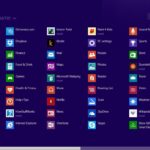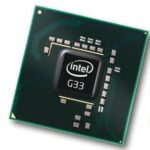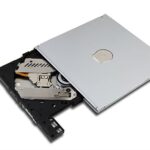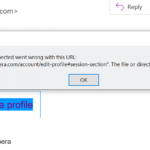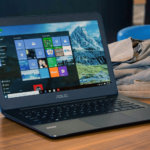All in all, tbaseprovisioning.exe of tbaseprovisioning is a software component of Advanced Micro Devices Software developed by Advanced Micro Devices. If your computer uses an AMD GPU, there is a good chance that you would come across tbaseprovisioning.exe as you open Task Manager. In most of the cases, there is no need to pay attention to tbaseprovisioning.exe. Still, if you notice issues involving tbaseprovisioning.exe and tbaseprovisioning on your computer, you have to take action.
An Overview Of The Process

For your information, tbaseprovisioning.exe is an executable file and executable files could cause many hassles at times. For instance, you may notice tbaseprovisioning.exe using an excessive amount of resources which impairs other programs. Needless to say, you would have a hard time putting your computer to good use if most of its resources get stuck in a single process. On the bright side, if you know what must be done, you could bring everything back to normal with relative ease.
What You Could Do

Scan For Malware
- Step 1: Click Start menu then pick the cog icon.
- Step 2: In Settings, select Update & Security, choose Virus & threat protection in Windows Security and hit Scan options.
- Step 3: Click Full scan, hit Scan now and allow the scan to go all the way.
- Step 4: Restart your computer.
- Step 5: Witness the result.
Perform SFC And DISM Scan
- Step 1: Go to Search bar, type cmd and hit Run as administrator.
- Step 2: In Command Prompt (Admin), type the command sfc /scannow and press Enter to perform SFC scan.
- Step 3: Following the conclusion of the SFC scan, type the following commands and press Enter each time you complete one to perform the DISM scan:
- DISM /Online /Cleanup-Image /ScanHealth
- DISM /Online /Cleanup-Image /CheckHealth
- DISM /Online /Cleanup-Image /RestoreHealth
- Step 4: Proceed to type the command exit and press Enter to close Command Prompt.
- Step 5: Restart your computer then see how things turn out.
Take Advantage Of Resource Monitor (Resmon)
- Step 1: Open Command Prompt (Admin) then run the command resmon.
- Step 2: Read the report and apply changes accordingly.
- Step 3: Restart your computer.
Disk Cleanup
Over time, all sorts of data could accumulate on your computer and mess up the performance of executable files including tbaseprovisioning.exe. Thus, if your computer acts up and evidence points toward tbaseprovisioning as well as tbaseprovisioning.exe, you should make use of Disk Cleanup.
- Step 1: Go to Search bar, type Disk Cleanup and press Enter.
- Step 2: Select the drop-down menu, chose (C:) drive and hit OK.
- Step 3: Check all the checkboxes under Files to delete then hit OK.
- Step 4: Allow the process to go all the way then restart your computer.
Get Rid Of Non-Essential Programs
- Step 1: Go to Search bar, type Control Panel and press Enter.
- Step 2: In Control Panel, change View by to Category then hit Uninstall a program under Program.
- Step 3: Locate each of the non-essential programs, right-click it and pick Uninstall.
- Step 4: Follow on-screen instructions to initiate the uninstallation.
- Step 5: Restart your computer.
Make Use Of System Restore
- Step 1: Go to Search bar, type System Restore and press Enter.
- Step 2: Click System Restore, pick a restore point and initiate the restoration.
- Step 3: The moment the process completes, check up on tbaseprovisioning.
Questions And Answers

What is an executable file?
An executable file is a file that could execute an operation on your computer and often feature the .exe extension. Running executable files allows computers to run the instructions held within them. Nowadays, it’s possible to find quite a few executable files on Windows but as a precaution, only run files from trustworthy sources. If you have concerns, feel free to scan the files using Windows Security before running them.
Do all executable files have the .exe extension?
On Windows, .exe is the file extension for executable files but while all .exe files are executable files, not all executable files are .exe files.

As PCWorld’s senior editor, Mark focuses on Microsoft news and chip technology, among other beats. He has formerly written for PCMag, BYTE, Slashdot, eWEEK, and ReadWrite.

